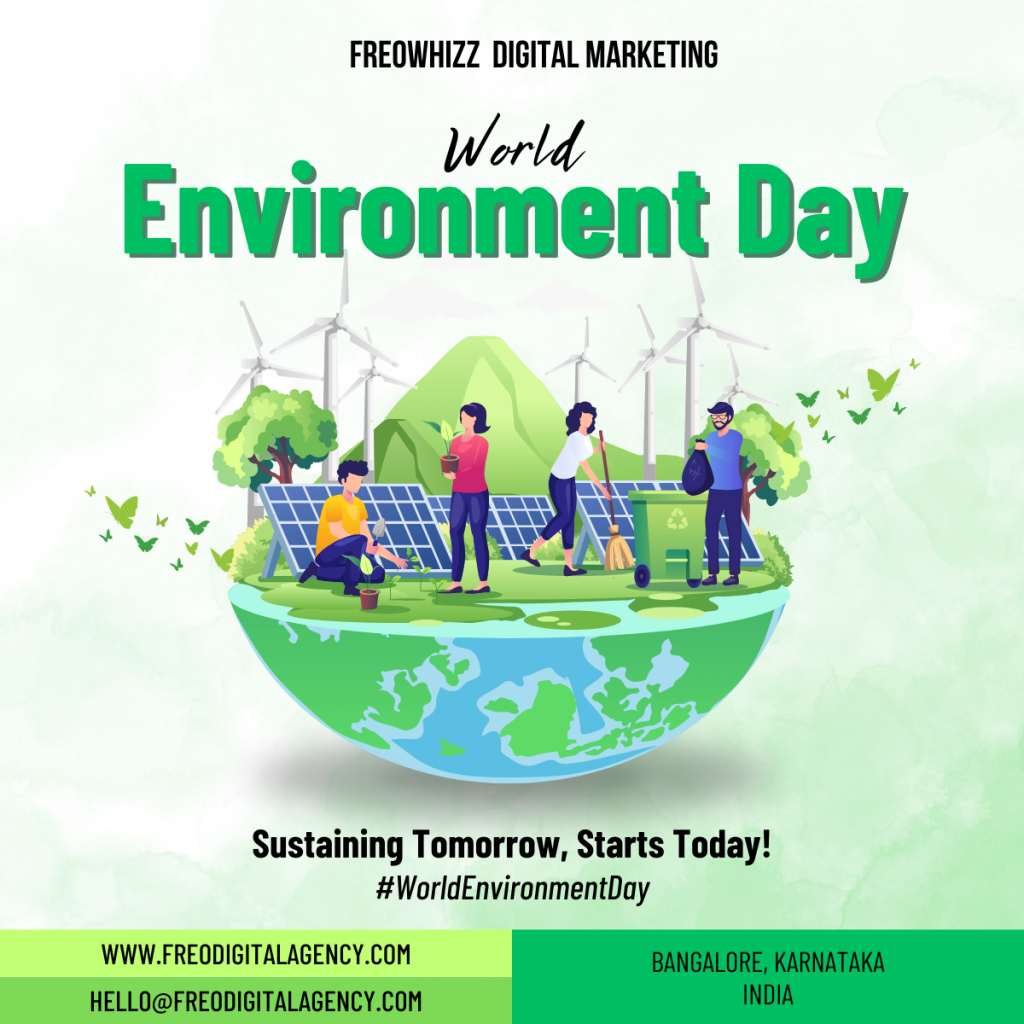![]()
World Environment Day, celebrated globally on June 5th every year, represents the United Nations’ most significant environmental awareness campaign, mobilizing millions of people worldwide to tackle urgent ecological challenges. Since its establishment in 1973, this flagship initiative has transformed from a simple awareness day into a powerful catalyst for environmental change, uniting governments, corporations, communities, and individuals in the collective fight against climate change and environmental degradation.
The historical significance of World Environment Day
The origins of World Environment Day trace back to the United Nations Conference on the Human Environment held in Stockholm in 1972. This groundbreaking conference marked the beginning of global environmental consciousness, leading to the creation of the United Nations Environment Programme (UNEP) and the designation of June 5th as World Environment Day.
Over five decades, this annual observance has evolved into the largest global platform for environmental outreach, reaching over 100 countries and engaging millions of participants. Each year, a different host country organizes the main celebrations, bringing unique perspectives and solutions to global environmental challenges.
Annual themes of World Environment Day and their impact on environmental awareness
World Environment Day’s strength lies in its focused approach to environmental issues. Each year’s theme addresses specific challenges: from “Beat Plastic Pollution” to “Restore Our Earth” and “Only One Earth.” These targeted campaigns have driven remarkable achievements in environmental protection and sustainability. The World Environment Day 2025 theme is #BeatPlasticPollution
The plastic pollution campaign, for instance, sparked worldwide bans on single-use plastics, while biodiversity conservation themes have led to the protection of millions of hectares of natural habitats. The renewable energy focus has accelerated the global transition to clean energy sources, with solar and wind power becoming the fastest-growing energy sectors worldwide.
The role of businesses in environmental sustainability
Corporate environmental responsibility has become central to World Environment Day’s mission. Modern businesses recognize that sustainable practices aren’t just ethical imperatives—they’re strategic advantages in an increasingly environmentally conscious marketplace.
Companies worldwide are implementing comprehensive sustainability strategies, including carbon footprint reduction, circular economy principles, and green supply chain management. The rise of Environmental, Social, and Governance (ESG) investing has made environmental performance a key factor in business valuation, with sustainable companies often outperforming their traditional counterparts.
Green technology sectors are experiencing unprecedented growth, creating new job opportunities in renewable energy, waste management, environmental consulting, and sustainable manufacturing. This green economy transformation demonstrates that environmental stewardship and economic prosperity can not only coexist but mutually reinforce each other.
Individual actions that drive environmental change this World Environment Day
While large-scale initiatives capture headlines, World Environment Day emphasizes that individual actions create the foundation for global environmental progress. Personal environmental choices influence market demand, corporate policies, and governmental regulations.
Simple lifestyle changes can have significant cumulative impacts: reducing energy consumption through efficient appliances and smart home technologies, choosing sustainable transportation options like electric vehicles or public transit, adopting plant-based diets to reduce carbon footprints, and supporting businesses with strong environmental commitments.
The zero-waste movement, sparked by individual commitment to reducing personal waste, has influenced entire industries to rethink packaging and product design. Community-level initiatives like urban gardening, local renewable energy cooperatives, and neighborhood recycling programs demonstrate how grassroots environmental action scales up to create meaningful change.
Climate Change and Environmental Justice
World Environment Day increasingly highlights the intersection between environmental protection and social equity. Climate change disproportionately affects vulnerable communities, making environmental justice a critical component of sustainability efforts.
Developing nations often bear the brunt of environmental degradation while having contributed least to the problem. World Environment Day promotes international cooperation, technology transfer, and financial support to ensure that environmental solutions are equitable and inclusive.
Environmental justice initiatives focus on ensuring clean air and water access for all communities, preventing environmental racism in industrial siting decisions, and including marginalized voices in environmental policy-making processes.
Innovation and technology in environmental solutions
Technological innovation plays a crucial role in addressing environmental challenges highlighted on World Environment Day. Breakthrough technologies in renewable energy, energy storage, carbon capture, and sustainable materials are revolutionizing how we interact with our environment.
Artificial intelligence and big data analytics help optimize resource use, predict environmental changes, and improve conservation efforts. Smart city technologies reduce urban environmental impacts through efficient transportation systems, intelligent energy grids, and waste management solutions.
Biotechnology advances are creating sustainable alternatives to traditional materials, from bioplastics to lab-grown materials that replace resource-intensive production methods.
Looking toward a sustainable future this World Environment Day
World Environment Day 2025 comes at a critical juncture in environmental history. Climate science continues to emphasize the urgency of immediate action, while technological and social innovations offer unprecedented opportunities for positive change.
The path forward requires sustained commitment from all sectors of society. Governments must implement and enforce environmental regulations, businesses must integrate sustainability into core operations, and individuals must make conscious choices that support environmental health.
World Environment Day serves as an annual reminder that environmental protection isn’t just an obligation to future generations—it’s an investment in creating a more prosperous, equitable, and sustainable world for everyone.
Conclusion: Every action counts
As we observe World Environment Day, we’re reminded that meaningful environmental change happens when awareness translates into action. Whether through policy advocacy, sustainable business practices, community engagement, or personal lifestyle choices, everyone has a role in creating the environmental future we want to see.
The collective power demonstrated on World Environment Day proves that when humanity unites around a common cause, we can achieve remarkable environmental progress and build a truly sustainable future.
FreoWhizz Digital is environmentally responsible modern and professional digital marketing service provider. Visit our site and our blog for more insightful posts.


For the reason that the author of this blog is working, no uncertainty very quickly it will be renowned, due to its quality content.
Thank you for your kind words. We appreciate it. Keep visiting our blog and share your thoughts and feedback.